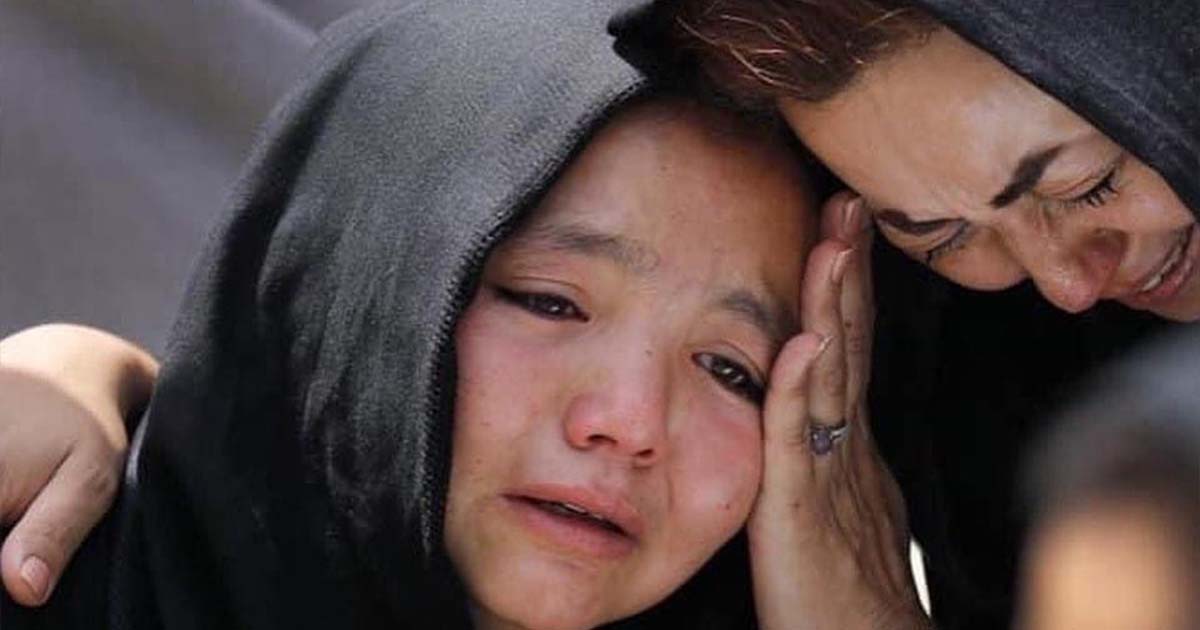

The Crisis in Afghanistan And Humanity’s Capacity for Evil
08/25/21
John Stonestreet and Kasey Leander

The American withdrawal from Afghanistan is forcing us to consider, again, humanity’s incredible capacity for perpetuating evil. President Biden’s rationalizations cannot hide the many painful questions that remain: What will Taliban rule mean for Afghan women and children? For Christians? For dissidents and journalists? What will happen to those Afghan citizens who served and stood with the U.S. for the last two decades? Has this extremist regime really evolved as they claim and as many hope?
The desperate scenes at the Kabul airport are hard to take in. To describe America’s exit strategy as “negligence” is charitable. More accurately, it’s somewhere between folly and abandonment. It’s the latest chapter in a war with, as Mindy Belz put it, “a history of political ambivalence.” Even back in 2006, one frustrated soldier described it this way: “We’re at war; America’s at the mall.” It may have been our culture of self-absorption that sowed such a catastrophic exit, but it’s the Afghan people who are reaping the whirlwind.
In his book A Free People’s Suicide, Os Guinness observed a historical reality that is now being played out before our eyes. Winning freedom is not rare in history; maintaining freedom is. As James Monroe lamented, “How prone all human institutions have been to decay. How difficult it has been for mankind, in all ages and countries, to preserve their dearest rights and best privileges, impelled as it were by an irresistible fate of despotism.”
Again and again throughout history, human frailty, foolishness, and fallenness corrupt even our best endeavors. Israel thought it had a righteous king in David, but his sin wrought personal, familial, and national havoc. Emerging from Roman persecution, some Christian leaders turned around and persecuted their pagan neighbors. St. Augustine of Hippo finished City of God, then watched from his deathbed as Vandals destroyed what was left of the Roman world. Even U.S. President James Monroe was a painful contradiction: a President who advocated for abolition but stubbornly refused to free his own slaves.
Every story of human failure reminds us, again, just how desperate our world is for re-creation. When it comes to this fallen world, a quick paint job won’t do. We are not capable of cleaning up our messes, or putting back together what we’ve broken. Even the best human rulers, institutions, and heroes of history cannot save us. Only the God of the Cosmos can. If He isn’t on the throne, ruling and redeeming, all is lost.
Jesus’ mission to Earth must be properly understood if we are to make sense of the brokenness we see around us. His is more than merely an inspiring story of sacrifice, service, and humility. It’s even more than the story of how we can find forgiveness and avoid eternal punishment. The story of Jesus certainly isn’t about less than these things, but it is about so much more. His story is the story of the entire Cosmos. His is the story that best describes reality, particularly in its brokenness.
Os Guinness observed that “Christianity is the only religion whose God bears the scars of evil.” In the context of the Fall, this is significant. By suffering within His creation and with His image-bearers, being despised and abandoned, tasting the bitterness of human failure and corrupt institutions, feeling anger at injustice and sadness at human frailty, Jesus experienced evil in its fullness. In His death, He became the only fully innocent victim of evil. And, by resurrecting from the dead, Jesus became the only secure source of hope – hope that evil will indeed be overcome and ultimately defeated. Though all human institutions should fail, Christ will make all things new.
Everything truly Christian flows from these bedrock truths: our ethics, any strength we have to continually push back against evil and brokenness, any good that is within us. It’s only because the Judge of the universe is perfect that our earthly justice has any meaning. It’s only because of what Christ has done for us that we can truly love and care for our neighbors.
America has some serious soul-searching to do in light of this failure in Afghanistan. Even more, we have some serious course-correcting to do. Specifically, we’ll need to reckon with the humanitarian crisis we’ve helped to create, and we’ll need to find ways to support the tiny, embattled Christian remnant there.
At the same time, the only way to bear the overwhelming weight of suffering and evil in this world, the kind we are witnessing in Afghanistan, is to embrace the long Christian view of history, and to fix our eyes on the Christ Who is at its center. All other ways lead to either judgmental cynicism or self-centered hedonism. Only the story of Christ is big enough to make sense of the evil in our world. Only His nail-scarred hands are strong enough to hold the course of humanity. As Edward Shillito wrote in his masterful poem Jesus of the Scars, “to our wounds only God’s wounds can speak. And not a God has wounds but (Christ) alone.”
Resources:
Understanding What’s Happening in Afghanistan with Mindy Belz
John Stonestreet & Mindy Belz | BreakPoint | August 16, 2021
Have a Follow-up Question?
Up
Next















